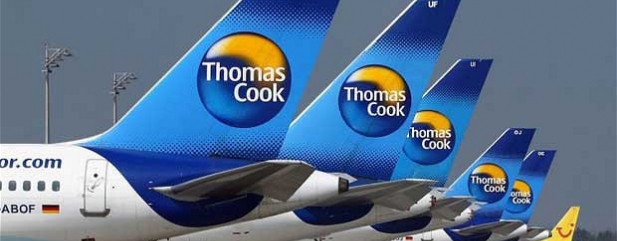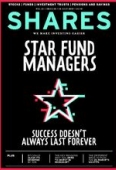Archived article
Please note that tax, investment, pension and ISA rules can change and the information and any views contained in this article may now be inaccurate.
Thomas Cook investors in a spin as they brace for debt-for-equity pain

Debt-for-equity swaps are rarely good news for shareholders despite potentially keeping the lights on in a business.
That matters for anyone owning stock in holiday seller Thomas Cook (TCG) as they are now facing this situation and therefore need to understand what debt-for-equity really means.
Shares in Thomas Cook halved in value on 12 July when the company outlined a £750m refinancing plan that would see major shareholder Fosun, a Chinese tourist group, gain a controlling stake in the package holiday part of Thomas Cook and a minority interest in its airline operations. The exact terms have yet to be published.
The proposed deal would also see much of Thomas Cook’s bank and bond debt being converted into equity. Its lenders are essentially saying they would be happy to take new shares in Thomas Cook instead of having existing loans paid back in cash.
The alternative for them is to wait for the travel group to repay its borrowings. However, given the severity of the financial pressure the business is under, there would be a significant risk that Thomas Cook couldn’t pay back its debt and so they lose out.
Going down the debt-for-equity route is seen as a last resort for lenders to try and claw back their money.
Lenders taking new equity creates a much greater pool of shares in issue and so existing shareholders would be heavily diluted. Imagine Thomas Cook was a cake with eight slices and eight shareholders. By swapping debt for new shares, Thomas Cook is essentially re-cutting its cake into much smaller slices per shareholder.
Companies often distribute some of their profits to shareholders in the form of dividends. If the pool of shares has got much bigger as a result of the debt-for-equity swap, it means any dividend payments have to be spread across a greater number of people and each investor’s share could be tiny.
Thomas Cook suspended dividends last year and it is hard to see it paying them again in the near future, although the lenders accepting new shares will inevitably hope for such payments down the line.
Debt-for-equity swaps can also impact voting rights. Existing shareholders have a smaller voice following these deals because of the big equity dilution and the lenders taking on the new shares could become a dominant force in terms of voting on company actions.
Construction services group Interserve announced a debt-for-equity plan earlier this year that handed control of the business to banks. However, its largest shareholder, the US hedge fund Coltrane, voted against the plan and so the business went into administration and anyone owning its shares lost all their money.
It doesn’t always end badly with debt-for-equity schemes. For example, Punch Taverns refinanced in 2014 and three years later was acquired for £1.8bn by Heineken and Patron Capital. However, shareholders did see a large amount of value wiped off in the preceding years when the pubs company was drowning in debt, and the subsequent takeover only clawed back a small fraction of this lost value.
Important information:
These articles are provided by Shares magazine which is published by AJ Bell Media, a part of AJ Bell. Shares is not written by AJ Bell.
Shares is provided for your general information and use and is not a personal recommendation to invest. It is not intended to be relied upon by you in making or not making any investment decisions. The investments referred to in these articles will not be suitable for all investors. If in doubt please seek appropriate independent financial advice.
Investors acting on the information in these articles do so at their own risk and AJ Bell Media and its staff do not accept liability for losses suffered by investors as a result of their investment decisions.

 magazine
magazine








